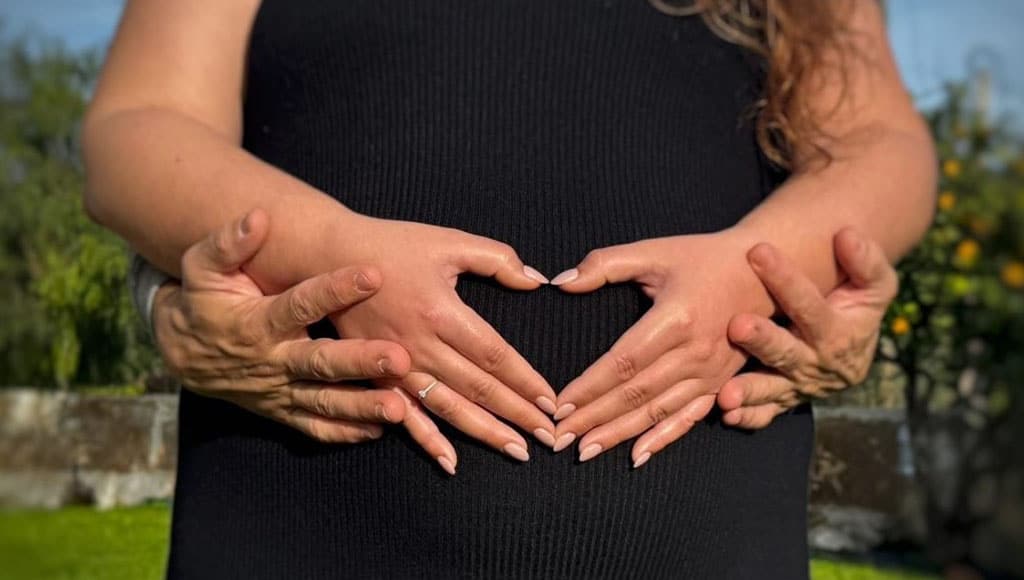With a new baby due in the family, naturally discussions have centred on what the baby’s name will be. For some people, it is an easy choice, while others wait for inspiration until they meet their little one, which is what happened to me.
First names, known as given names, traditionally originate from religion, mythology, nature, history or linguistic roots such as Latin, Hebrew, Greek, Arabic or Germanic.
Children are literally named after anything. A place (Paris, India), nature (Rose, River), mythology (Zeus), religion (Jesus), after a virtue or trait (Grace, Brave), a colour (Scarlett), a season (Summer), an occupation (Hunter) … Some children are named in honour of a family member, a famous personality or fictional character. The possibilities are endless – unless you are Portuguese parents!
Did you know that Portuguese parents cannot name their child anything they like and this has been the case since 1911 when the official list of permitted names was created after the proclamation of the Portuguese Republic?
It is one of the most restrictive lists in the world despite having 88 pages with 3,530 boys’ names and 4,019 girls’ names to choose from. The government at the time wanted to ensure future generations had names that respected Portuguese traditions, with many reflecting Roman, Germanic and Moorish influence, cultures that played key roles in shaping the history of the Iberian Peninsula.
Although the list has changed over the years to remove names no longer used and to include more modern and foreign names as well as variations of spellings of traditional names, Francisco and Maria continuously remain the most popular. Saints’ names are favourites too.
If one of the child’s parents is foreign, they are not restricted to the list, but if they have double nationality then Portuguese law prevails. It is possible for parents to request the use of a name not on the list, but it can take some time for it to be approved, or not!
Furthermore, children cannot be given more than two first names and four surnames, although the surnames can be any order or combination of the parents or the grandparents’ surnames.
No wonder it is so hard to do family tree research here as there is no consistency within a family’s surname, especially if the parents also opt to add ‘de’, ‘da’ or ‘do’ to the surname such as ‘da Costa’!
Parents are also forbidden from naming siblings with the same first name unless one of the children has died or unless the second child’s name is double barrelled, e.g., João and his brother becomes João Pedro.
It is all so restrictive and complicated!
Other countries like Spain and France also have lists and in countries where parents are free to choose, there are still names that are officially banned if deemed to be misleading, offensive, too long, unpronounceable or obviously ridiculous.
Royal and official titles such as King or Princess are often denied and are completely banned in Australia for misleading people into believing the individual has the referred title.
I do feel for the boy named ‘Facebook’ in Mexico and the little girl named ‘Hashtag’ in America. Is this fair on them? US courts have actually ruled it illegal to name a child Santa Claus, Majesty or 1069!
Where there are no restrictions, children are often given ‘unusual’ names, leaving them either proud to be unique or embarrassed for life. I hope that the English children named ‘Arsenal’ actually grow up to support the infamous football team.
More and more parents are nowadays opting for gender neutral names too or using names that traditionally belonged to the opposite sex and there are always those names that are over-popular in each generation.
It can be confusing for teachers and the children when there are several in a class with the same name. Santiago is prevalent at the moment in primary classes in Portugal and I notice that you can usually guess someone’s age group from their name for there seem to be here a lot of Bruno’s and Tiago’s in their thirties.
Foreigners living in Portugal will also have to think how their child’s name will be pronounced. I love the name Ella, but this does not work in Portugal as ‘ela’ means ‘she/her’.

In Portugal last year, the top five names for girls were Maria (4,295 registered), Alice (992), Benedita (973), Matilde (942) and Leonor (913). Boys were Francisco (1,270), Lourenço (1,040), Vicente (1,036), Tomás (1,036) and João (1,027).
To be different, some parents change the spelling of a traditional name thus forcing their child to forevermore spell out their name every time it has to be given to someone for paperwork – like I do. Every time I show my ID, I am asked: “should your name not be with an ‘a’?” Remember to also check what all the initials will spell out to avoid embarrassments.
What about the American tradition of naming a boy after his father who was named after his father, and so on through the generations, so that they end up with numerals after their name, e.g. John V? This male tradition reflects family pride although daughters are not often named after their mothers.
I have noticed though, through family tree research, that children in the 19th century UK were often named after a parent and the mother’s maiden name was commonly used as a middle name.
Surnames, too, are increasingly popular as first names. For instance, Luz and Xavier are used here and Jackson and Cooper are used in the UK.
I like to read about the origins of surnames which are invariably related to a place, occupation, a physical trait or are patronymic, i.e., derived from a parent’s name such as Johnson, which means son of John. Each tells a unique story of our ancestry.
Until the law changed in January 2024, a Portuguese baby’s name had to be identifiable as for a male or female, so even though now parents are no longer so restricted, the name must still appear in the appropriate list for males or females.
As parents opt to choose a unique or unusual name, they are expressing their creativity and sending a message to the world, but they should consider the effect that this will have on their child. A unique name can be empowering and inspiring, or a burden. I read of some children being named ‘Awesome’. Just imagine them having to say “I’m Awesome” when they introduce themselves. I kind of like that!
So now you know!
By Isobel Costa
|| features@algarveresident.com
Isobel Costa works full time and lives on a farm with a variety of pet animals! In her spare time, she enjoys photography, researching and writing.




















